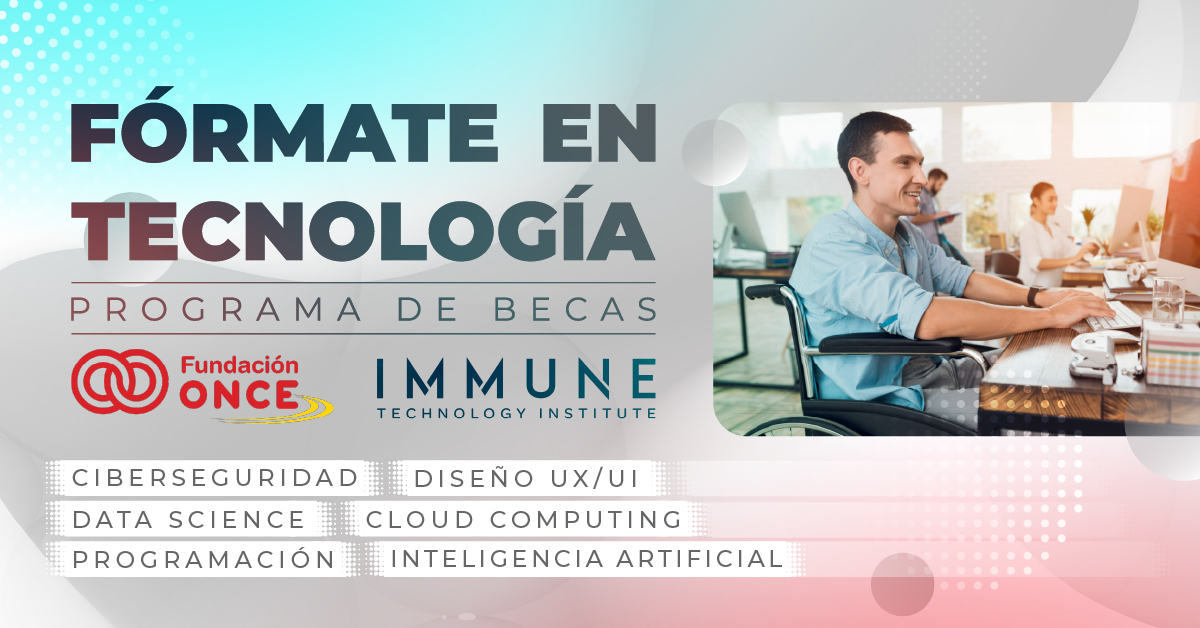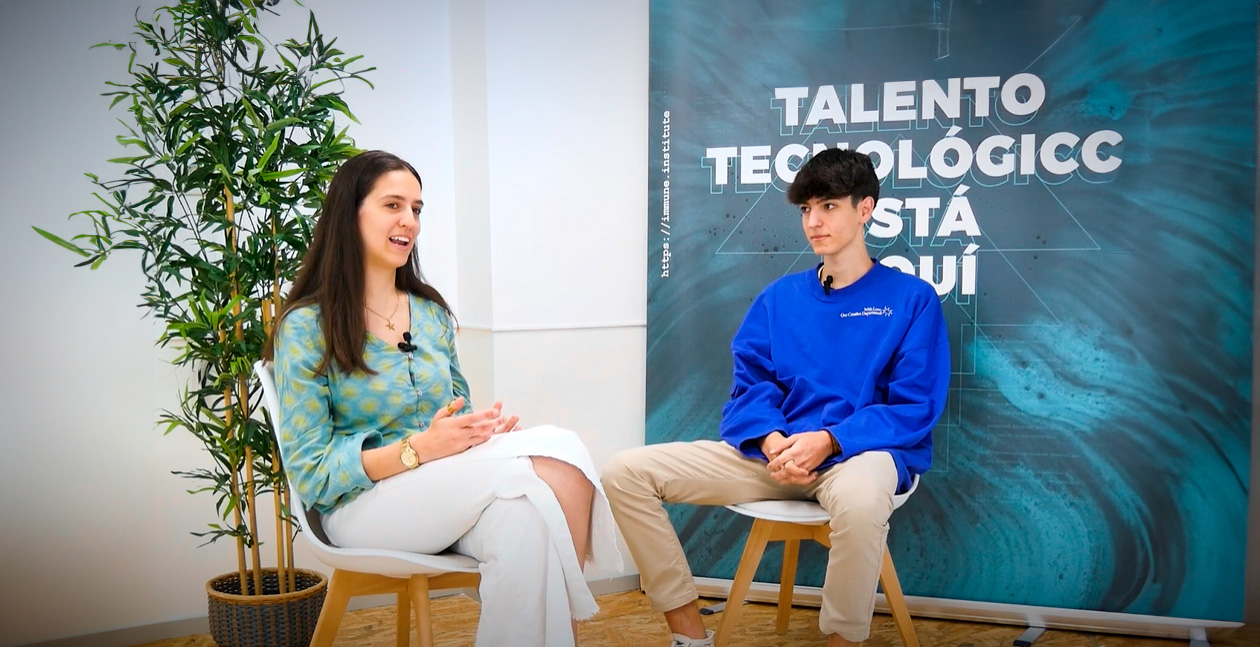En el primer Impactful Tech, el ciclo de conferencias y debates puesto en marcha por IMMUNE Coding Institute, se dieron cita un total de cuatro expertos en materia de ciberseguridad para analizar los problemas que presenta esta disciplina a nivel nacional e internacional. Así, en el debate participaron Félix Barrio, gerente de Industria, I+D y Talento del INCIBE; Silvia Barrera, experta en ciberseguridad y cibercrimen; José Parada, CISO de Telefónica Digital y Beatriz Ruiz, Head of Global Human Resources People Culture de S21Sec.
Los expertos acercaron posturas y compartieron opiniones acerca de la situación actual de la ciberseguridad en nuestro país y de los retos que se avecinan, se llegó a distintas conclusiones. La principal, la necesidad de especializar a los profesionales que trabajan en el área de ciberseguridad con un doble objetivo: hacer frente a las necesidades presentes de la industria y poder afrontar los retos de seguridad en tecnologías como IoT, Inteligencia Artificial o Cloud.
Alrededor de cada una de estas se desarrolla un ecosistema diferente con unos perfiles profesionales distintos y una legislación concreta aplicada. Teniendo en cuenta las diferentes particularidades de cada una de las tecnologías, José Parada, CISO de Telefónica Digital, aseguró que “la ciberseguridad es un área tan amplia que es imposible crear un experto en ciberseguridad”, sino que se debe impartir “formación acotada a cada ámbito de aplicación, desde normativa a codificación, secure coding, hacking o arquitectura de infraestructuras críticas”.
Beatriz Ruiz, head of Global Human Resources People Culture de S21sec se mostró durante la charla de acuerdo con la afirmación de Parada, y añadió que “los perfiles profesionales son muy diferentes y además tienen intereses muy distintos, un perfil de coding no espera trabajar en el área normativa”. Además de cierta especialización, se requiere de una formación continua. Como explicó Silvia Barrera, experta en ciberseguridad y cibercrimen, “la ciberseguridad es una profesión dura porque tienes que estar en constante actualización”.
Soft Skills, igual de necesarias
Como ya hemos visto, aunque la especialización de los expertos en ciberseguridad es clave para el sector, también lo son las Soft Skills. En otras palabras, el profesional que se dedique a la ciberseguridad también debe poseer habilidades de gestión, resiliencia, comunicación y saber adaptarse a cada situación. En palabras de José Parada, “cuantas más tengas, mejor”, ya que las Soft Skills son todas buenas. A esto, Beatriz Ruiz añadió que la pasión y la vocación son igual de importantes en este oficio, en el que los trabajadores “deben ser personas con una integridad ética muy alta” al adquirir conocimientos sobre materias muy sensibles y deben saber gestionarlo de una forma concreta y correcta.
Desde IMMUNE Coding Institute, además de dar una formación completa en informática y tecnología, trabajamos para que nuestros estudiantes desarrollen su máximo potencial y habilidades de Soft Skills, en colaboración con la Universidad de GeorgeTown. ¿Quieres saber más? Visita nuestra página web, donde podrás encontrar más información acerca de los cursos para impulsar tu carrera profesional en tecnología.
Captación y retención del talento
Para intentar reducir al mínimo el déficit de trabajadores previsto para el futuro, desde INCIBE, como comentó Félix Barrio durante el Impactful Tech, se trata de “nutrir la demanda actual con perfiles ya formados, y por otro hemos desarrollado actividades que incentiven a los más jóvenes a incorporarse al sector de la ciberseguridad”. Estas actividades se han dividido, dirigiendo una línea “a perfiles con formación académica universitaria, ingenieros, telecos, etc. y otra línea de actividades que buscan el talento entre quienes no tienen formación”.
Papel de la mujer
Siguiendo con la necesidad de captar y retener el talento, durante el Impactful Tech se trató el papel de la mujer en la ciberseguridad. Como afirmó José Parada en el debate, “es difícil encontrar mujeres expertas en ciberseguridad, la relación es de una mujer por cada diez hombres”. Esta cifra se ve reforzada por un artículo de Elena Herraiz, People & Financial Manager de Entelgy Innotec Security, donde afirma que la mujer solo representa el 11% de la fuerza laboral de la industria de la ciberseguridad y, de estas, tan solo el 2% ocupa el puesto de manager.
Parada continuó indicando que, aunque no haya muchas mujeres en el sector, las que hay “son profesionales excelentes porque son completamente vocacionales, son mujeres que han tenido que desarrollarse en un mundo de hombres y pelear su papel”. A estas palabras, Beatriz Ruiz añadió que “hay que promover un cambio de mentalidad general, para que las niñas de hoy en día encuentren ejemplos de mujeres que les sirvan de referencia”. Para conseguirlo, han nacido iniciativas como Girls who code, en Estados Unidos o Inspiring Girls en España.
Modelo formativo innovador
Desde IMMUNE Coding Institute creemos firmemente en un nuevo modelo formativo que suponga para los futuros CTOs un reto y no una obligación. Para ello, nuestros alumnos estudian coding desde la ejecución de proyectos y trabajo en equipo de la mano de grandes empresas, instituciones y profesionales del sector tecnológico de todo el mundo. ¿Quieres saber más? Visita nuestra página web, donde podrás encontrar toda la información necesaria para conocer los cursos con los que hacerte todo un experto de la tecnología.
 10 September 2024
10 September 2024 5 August 2024
5 August 2024 27 June 2024
27 June 2024
Paseo de la Castellana 89, 28046 Madrid
hello@immune.institute © IMMUNE Technology Institute. All rights reserved.





 Innovation Catalyst
Innovation Catalyst Academic Partners
Academic Partners






 International partners
International partners







